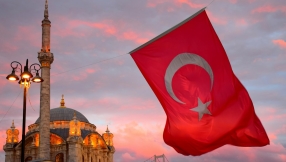Martin Luther King Remembered
|PIC1|Thousands gathered across the U.S. Sunday to honour King and celebrate the efforts of a man who strongly promoted non-violence and racial equality in a nation divided against itself on the issue.
Throughout the country, events were scheduled to honour the memory of the civil rights leader, whose 77th birthday would have been on Sunday and will be celebrated as a national holiday Monday.
But while King is best known for his role in the American Civil Rights Movement, the Nobel Peace Prize winner remained first and foremost a pastor.
“Religion has been real to me and closely knitted to life. In fact the two cannot be separated; religion for me is life,” King wrote in an essay in November 1950.
"The pastor role was central to everything, virtually everything, that Dr. King achieved," said Lewis Baldwin, professor of religious studies at Vanderbilt University, and who specializes in the history of the black churches in the United States.
In many ways, King was simply carrying on the family business, Baldwin told The Seattle Times.
|TOP|"His father was a pastor. His grandfather had been a pastor. His great-grandfather had been a pastor, and several of his uncles were preachers and pastors.”
King was 25 and finishing his doctoral dissertation at Boston University when he was appointed to his first pastorate, at Dexter Avenue Baptist Church in Montgomery, Alabama.
It was 1954 and King arrived after a period of internal tensions in the congregation. Church leaders were looking for somebody to help restore morale.
"He didn't come to Montgomery to lead a boycott," Dexter Avenue associate pastor the Rev. Mary Jo Smiley told The Seattle Times. "He came to be a pastor."
|QUOTE|But even as the young King was establishing his pastorate, racial tensions were rising in Montgomery — tensions that would launch him into a national leadership role.
About a year after King’s arrival, Montgomery seamstress Rosa Parks was arrested for refusing to yield her seat on a bus to a white passenger. The event prompted a group of 16 to 18 people to gather at the Mt. Zion AME (African Methodist Episcopal) Zion Church to discuss boycott strategies.
The group agreed that a new organization was needed to lead the boycott effort if it were to continue. The Rev. Ralph David Abernathy, pastor of the First Baptist Church in Montgomery, suggested the name "Montgomery Improvement Association" (MIA). The name was adopted, and the MIA was formed.
Although King was a relative newcomer to Montgomery and a young and mostly unknown minister, he was elected as their president.
From then on, King began speaking out and leading peaceful protests. And from the pulpit of Dexter Avenue Baptist Church, he helped ignite the Montgomery bus boycott.
"It was the African-American church that nurtured him and gave him the sense that God was a God of justice, God was a God of mercy. God was a God of reckoning," said the Rev. Michael Thurman, who pastors the current-day Dexter Avenue King Memorial Baptist Church.













